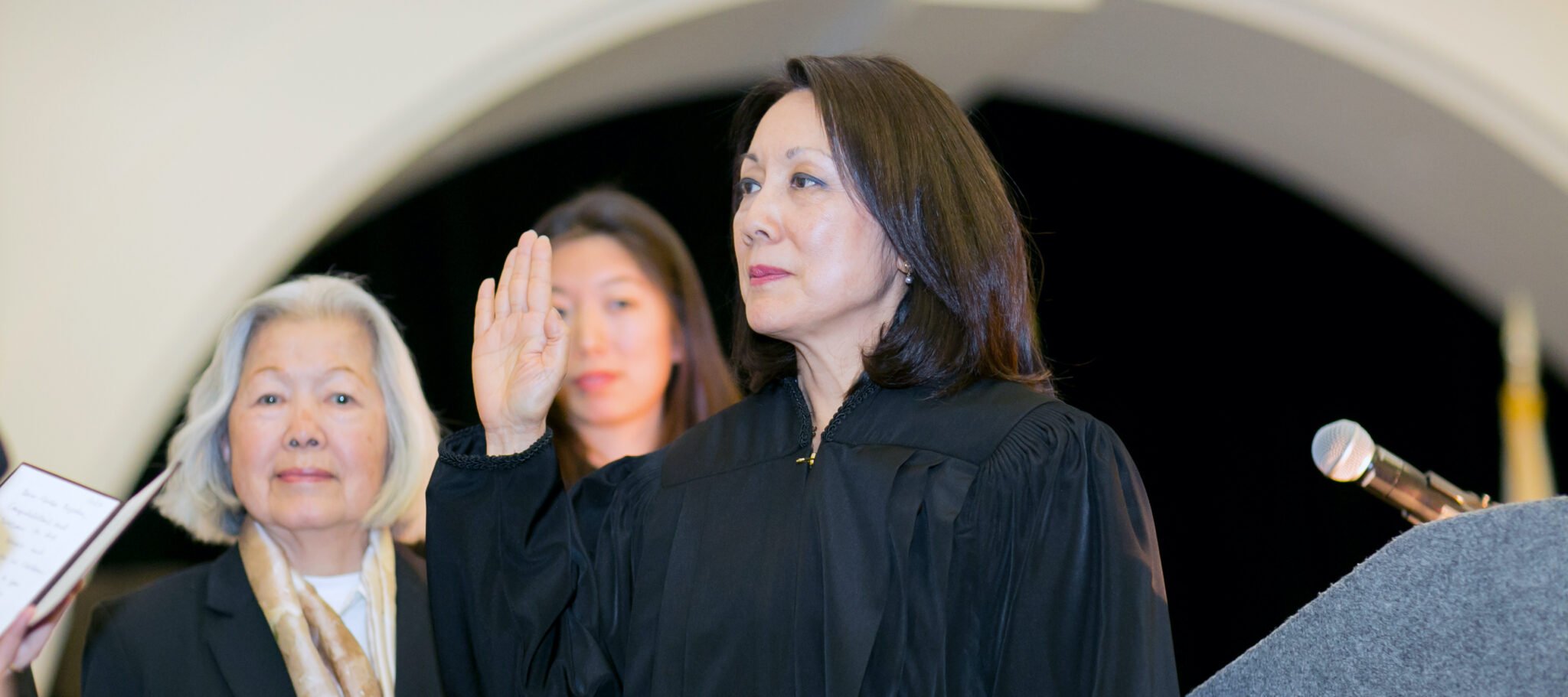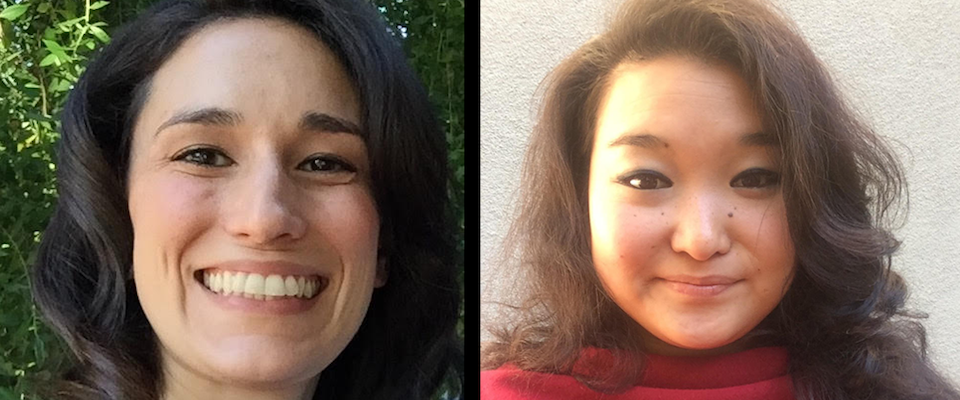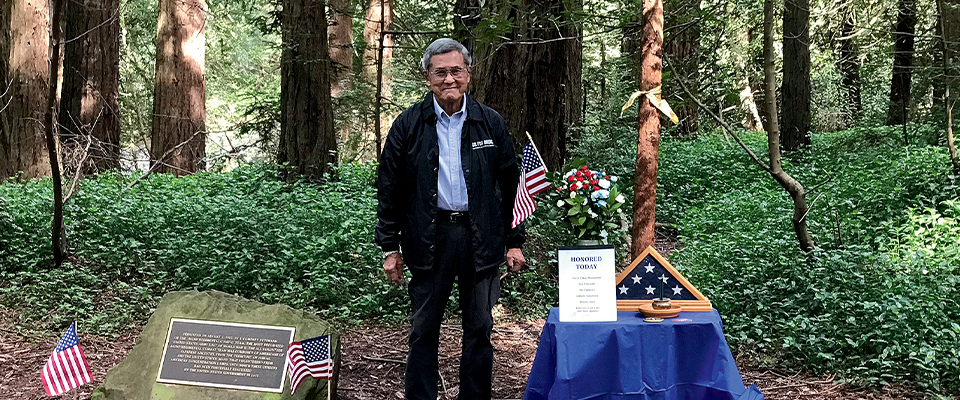On January 11, 2017, Margaret Fujioka ’79, JD ’82 took the oath of office in the Rotunda of Frank Ogawa Plaza in Oakland as the first Japanese American woman Superior Court judge in Alameda County. She was flanked by her proud mother, husband, and children, but her thoughts turned to two people who weren’t there: her late father, Yoshiro “Babe” Fujioka, and his hero, his big brother Teruo “Ted” Fujioka. Ted was killed in World War II long before she was born, but instilled in her the values that led to her career.
The Fujioka family was among the 120,000 Japanese Americans on the west coast who were forced to abandon their homes and businesses and be imprisoned behind barbed wire in euphemistically named “relocation camps,” where machine gun-toting guards in the towers were ordered to shoot anyone who tried to escape. The Fujiokas were sent to the Heart Mountain camp in Wyoming, where they had to endure freezing cold in the winter and suffocating heat in the summer, with howling winds constantly blowing dust and dirt through the many cracks in the ramshackle barracks.
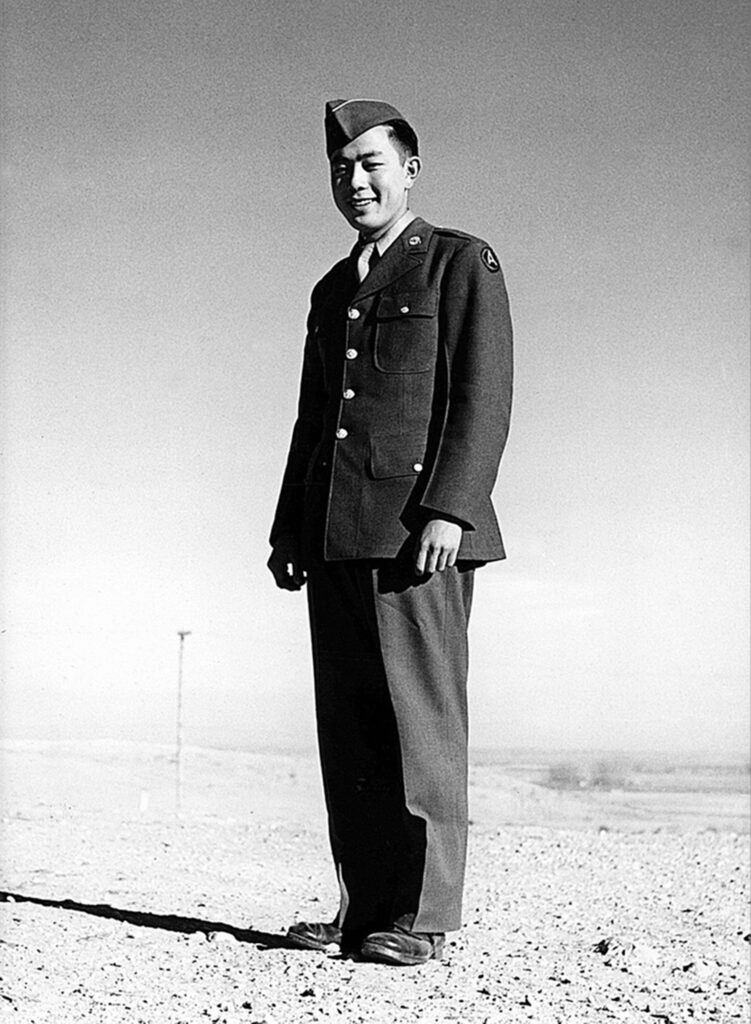
Many internment camps had schools for the thousands of imprisoned children, and at Heart Mountain High School, Ted was elected the first student body president as well as editor of the student newspaper, the Heart Mountain Sentinel.
“He aspired to be a lawyer and run for public office one day,” said Fujioka. But in 1943 the Army was so desperate for manpower that it created an all-volunteer, segregated Japanese American unit called the 442nd Regimental Combat Team (now the most decorated unit for its size and length of service in U.S. military history). Ted was one of the first to volunteer.
“The future welfare of all of us who hope to remain in this land rests almost entirely on how the 442nd does in battle. We’ve got everything to gain by doing our utmost, nothing to lose,” Ted wrote to his parents. “We have a chance to prove to all who doubt our loyalty and sincerity to this nation that we, too, are Americans and therefore entitled to live as Americans in the truest sense of the word.”
He fought in some of the bloodiest battles of the war, including the rescue of the Lost Battalion, a Texas national guard unit of 211 men who were trapped behind enemy lines. He survived that battle but, just two days later, Ted was killed in action in the Vosges Mountains at age 19. He is buried in the U.S. Military Cemetery in Epinal, France.
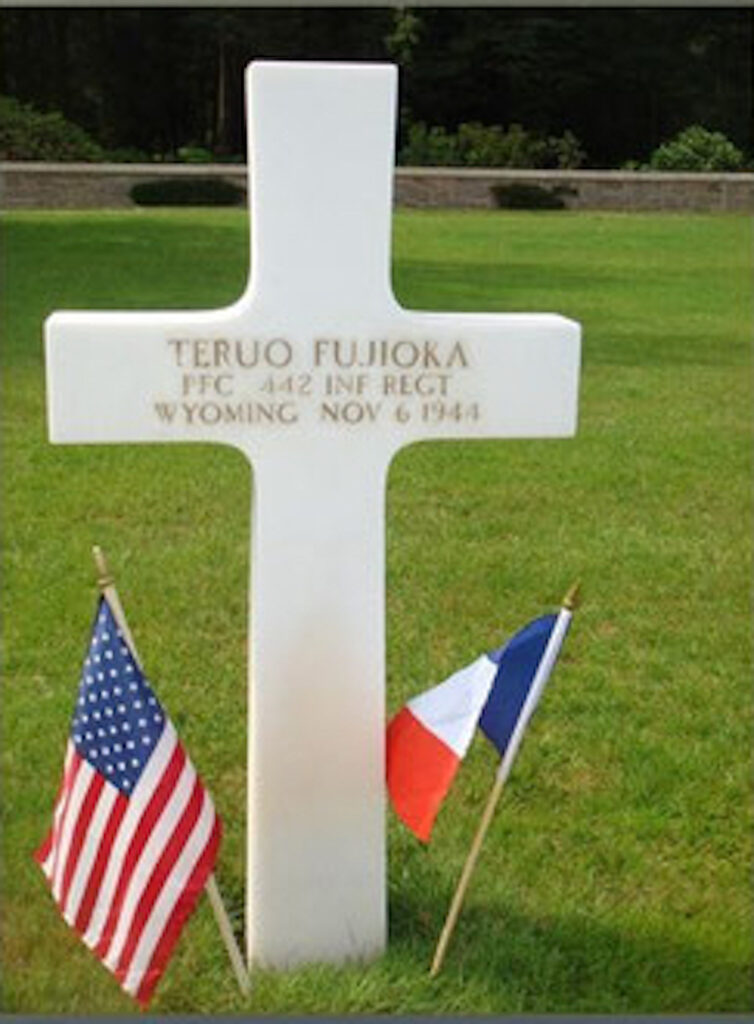
His family got the news in a telegram sent to them at Heart Mountain, followed by a Purple Heart some time later. They were crushed, especially Babe, who idolized his big brother. As he grew up, he determined to live his life according to the values that Ted had taught him. He passed those values on to his daughter.
“Uncle Ted has been my inspiration my entire life, and that comes from my dad,” she says. “He instilled in me a sense of duty to my family, my profession, and the greater community. He encouraged me to be a leader and said, ‘If you have the ability to do something, be sure you do it for the good of others.’
“Dad often spoke of the qualities that he and many others admired about Ted: intelligence, character, integrity, compassion, service to others, patience, patriotism, and his willingness to prove his loyalty by fighting in the 442nd for the principles he believed in – ‘democracy, equality, tolerance and, most of all, peace.’ These words inspire me every day.”
Margaret was born in Los Angeles and attended public schools from kindergarten to law school. She came north to go to Berkeley and never left. After getting her law degree from Hastings, she was a Deputy City Attorney in Oakland, and an Administrative Hearing Officer for San Francisco, Alameda County, and Oakland.
She is the former president of both the National Asian Pacific American Bar Association and the Asian American Bar Association of the Greater Bay Area.
In 2008 she ran for Piedmont City Council and won handily in a hotly contested election. She ran for re-election in 2012 and easily won again. In 2014 her colleagues unanimously elected her mayor. Among her accomplishments: creating the city’s first public safety committee dedicated to increasing public safety and disaster preparedness and bringing the city’s technological infrastructure into the 21st Century.
“There was no one more prepared, thoughtful or professional than Margaret,” says former Mayor Bob McBain, who served with Fujioka on the Piedmont City Council. “She treated everyone – even the most contentious – with respect.”
Termed out in 2016, she ran for an open seat on the Alameda County Superior Court and, once again, won handily. She was re-elected to a second six-year term in 2022.
“I was once told by a good friend who was a judge that this is the best job in the legal profession,” said Fujioka. “Now, after nearly seven years as a judge, I know my friend was right.”
Alameda County Superior court judges generally rotate assignments, and she’s currently presiding over criminal jury trials and preliminary hearings.
“My overall goal is to dispense justice, to be fair and impartial, and to listen to everyone so they all feel they’ve had their day in court. In order to do that, it takes thought and preparation on the judge’s part because the consequences of a criminal trial are so great, both to the victim and the defendant.”
She adds, “Trials have a lot of moving parts. For a trial to run smoothly, everyone has to be respectful of each other and follow the rules. If the judge sets a positive tone at the beginning, it carries through and makes the whole process more comfortable for everyone. When I prepare for the case, I strive to be as prepared, professional and polite as possible, and I expect the same from the lawyers.”
Judge Joni Hiramoto, her counterpart on the Contra Costa Superior Court, says she has the perfect temperament for the job.
“In the face of intense pressure and heated opinions, Margaret doesn’t use threats or try to bully people,” she says. “It’s her sense of fairness and respect for others that gives her such gravitas.”
Her dad and uncle Ted wouldn’t have wanted it any other way.
Reach Martin Snapp at catman442@comcast.net.











